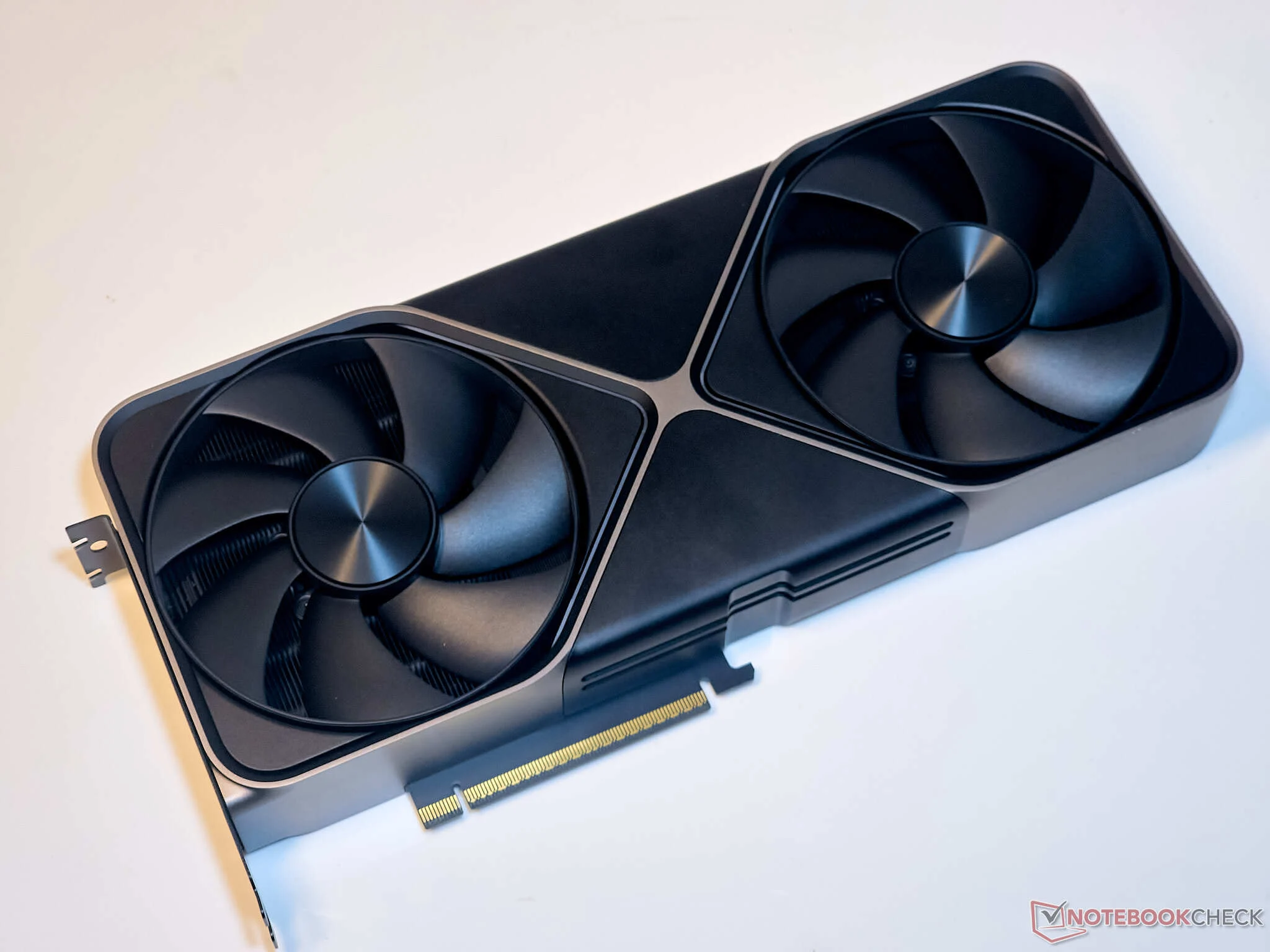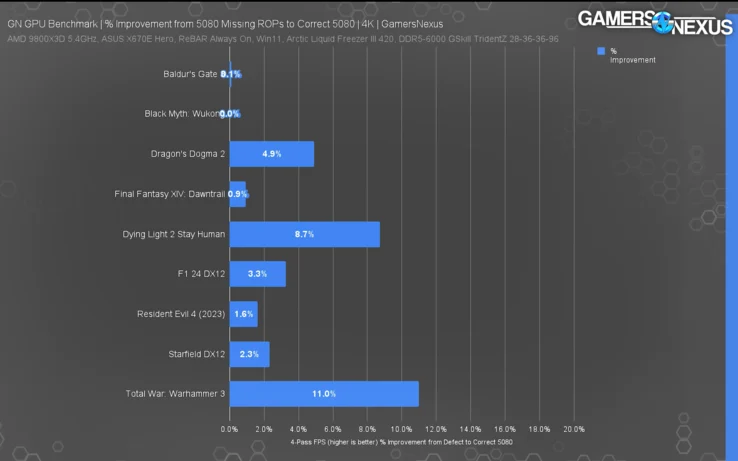Key Takeaways
1. Nvidia’s Pressure Tactics: Gamers Nexus (GN) alleges that Nvidia has pressured them to include specific performance metrics (MFG4X) in GPU reviews, even for unsupported models, claiming this is misleading and unethical.
2. Control Over Media Access: Nvidia reportedly threatened to restrict access to key engineers if GN did not comply with their editorial demands, indicating a desire to control media coverage rather than simply influence it.
3. Erosion of Trust: GN argues that Nvidia’s tactics have eroded trust in media coverage of their products, making it difficult for audiences to discern whether metrics were included voluntarily or under pressure.
4. Manipulative Corporate Culture: The article highlights concerns over Nvidia’s corporate culture, where executives may shift blame and use access to engineers as leverage against media outlets, impacting editorial independence.
5. Commitment to Integrity: Gamers Nexus emphasizes their commitment to maintaining editorial independence, even at the risk of losing future access to Nvidia products, urging other media outlets to resist similar pressures.
As Nvidia CEO Jensen Huang shares news about artificial intelligence, Gamers Nexus has taken this opportunity to reveal what it calls Nvidia’s growing manipulative behavior towards the media. In an editorial characterized by Steve Burke’s distinctive tone, the piece highlights a troubling trend of editorial pressure, coercive tactics based on access, and retaliatory measures that the outlet claims exceed standard industry practices.
Nvidia’s Demands
Gamers Nexus alleges that for the past six months, Nvidia has pressured its team to include Multi-Frame Generation 4X (MFG4X) performance metrics in GPU reviews, even in cases where the graphics cards tested do not support this feature. GN refused, asserting that such inclusion would be misleading, unethical, and fundamentally dishonest.
Threats and Access Control
Instead of relenting, Nvidia reportedly intensified its approach by threatening to deny access to key internal engineers — notably thermal engineer Malcolm and latency expert Gamm0 — both of whom resonate well with GN’s audience. Even though these engineers have no direct link to MFG technology, their availability was allegedly made contingent on GN agreeing to Nvidia’s editorial stipulations.
The main allegation from GN is that Nvidia is not just trying to influence coverage but is actively seeking to control it. This includes urging reviewers to depict the RTX 5070 as comparable to the significantly more powerful RTX 4090 by highlighting synthetic MFG-enhanced figures. Such comparisons risk misleading consumers by stripping away essential context.
The Nature of Communication
Burke argues that this behavior shifts Nvidia’s once-open communication with the media towards manipulation. While Nvidia has historically provided technical insights and briefings, GN contends that this access is now being leveraged to enforce compliance with corporate messaging. Once viewed as a hallmark of transparency, access to Nvidia’s engineers is increasingly seen as conditional and transactional.
Gamers Nexus is not isolated in voicing concerns. Burke mentions that the outlet contacted other reviewers and media representatives globally, revealing a pattern of behind-the-scenes pressure to influence editorial content. This includes explicit or implied expectations regarding how products should be framed and which benchmarks should be highlighted. According to GN, these strategies indicate a broader company-wide approach that goes beyond regional public relations teams.
Nvidia’s History of Controversy
Nvidia has faced its share of media influence controversies. In 2020, it temporarily cut off Hardware Unboxed’s GPU sampling access due to the outlet’s unwillingness to emphasize ray tracing metrics. A similar situation reportedly surfaced again, with Nvidia pressuring GN to modify its editorial stance on MFG and DLSS coverage.
Burke claims that Nvidia informed Gamers Nexus that integrating MFG into reviews was necessary to “secure budget” for interviews with engineers, even though GN incurs costs for traveling, filming, and editing those interviews without any financial compensation from Nvidia. This framing implies that Nvidia perceives all media interactions as fundamentally transactional, regardless of financial exchanges.
The Ripple Effect on Media
This framing also casts a shadow over other media organizations. Once Nvidia establishes precedent for linking access to editorial direction, every interview, performance graph, or editorial decision becomes questionable. GN argues that this not only undermines their credibility but also that of any reviewer discussing MFG or DLSS without full transparency regarding the nature of those discussions.
Gamers Nexus emphasizes that their frustration is not aimed at Nvidia’s engineers. On the contrary, they regard professionals like Malcolm and Gamm0 as knowledgeable and trustworthy, conveying insights born from experience rather than marketing agendas. These individuals have cultivated genuine connections with GN and its audience. However, GN now believes that Nvidia is intentionally using that rapport to enforce compliance.
Emotional Pressure Tactics
Burke notes that Nvidia often references these engineers when discussing coverage requirements. This tactic seems designed to apply emotional pressure, knowing that GN values these relationships. GN describes this as a form of manipulation, suggesting that if restricting access to GPUs fails, perhaps restricting access to respected engineers will succeed.
Despite producing over an hour of independent content on MFG and DLSS, including detailed analyses, GN states that Nvidia was still dissatisfied because the coverage was not integrated into review articles. The demand was explicit: include MFG4X in the charts or lose access.
Erosion of Trust
GN contends that this insistence has tainted any MFG or DLSS coverage presented by any outlet. Even if another reviewer includes those metrics out of genuine curiosity, audiences may question whether they did so voluntarily or under undue pressure. This erosion of trust harms both independent media and Nvidia’s own credibility.
Gamers Nexus has a history of engaging with major companies. They have previously confronted Intel and AMD over similar matters, emphasizing that this isn’t personal. However, the outlet feels that Nvidia’s tactics have crossed a new line that now encompasses not just hardware access, but access to personnel and potential internal reprisal.
Concerns Over Corporate Culture
Burke cites prior reports from former Nvidia employees who described a corporate culture where executives frequently shift blame downwards. GN worries that by going public with these claims, they might inadvertently harm the engineers and PR contacts who have no influence over high-level policies. Nonetheless, the outlet believes that transparency is essential for progress.
The article also recalls Nvidia’s contentious GeForce Partner Program (GPP) from 2018, which effectively required board partners to align their gaming brands exclusively with GeForce to retain Nvidia support. This program, widely criticized for being anti-competitive, was eventually withdrawn under public pressure and investigative scrutiny.
A Call for Integrity
In GN’s perspective, the current situation mirrors GPP in both approach and execution. The company is allegedly attempting to shape perception and limit coverage by using access and relationships as pressure points rather than relying on product quality and transparency. The message seems to be: adhere to the script, or risk exclusion.
GN concludes with a firm statement: they will not yield. Even if it means sacrificing future review samples, interviews, or relationships, they are committed to maintaining editorial independence. They also urge other outlets to take a stand. “If you give Nvidia an inch, they’ll take a mile,” warns Burke.
The piece finishes not by calling for a boycott, but by acknowledging that Nvidia produces remarkable products and its engineers offer valuable insights. However, both consumers and reviewers must be able to trust that coverage is accurate, independent, and not subject to corporate pressure.
At the heart of this conflict lies more than just performance metrics or technologies; it concerns the role of the press in an industry where access has become a bargaining tool and transparency comes with strings attached.
We will keep tracking this situation and provide updates as new information comes to light.
Source:
Link






